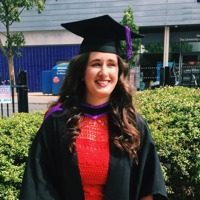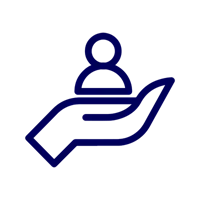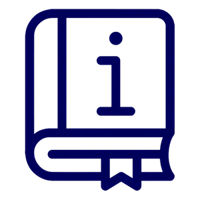
Genevieve Pascal
Editorial Assistant at The Lancet
Don't let anybody tell you you can't do something.
About Genevieve...
Who am I?
"I think my personality types are quite accurate. My work is a graduate entry role into medical publishing which is a great place for me to be as I am passionate about research and advancing knowledge. My personality traits are useful for my role as I am required to listen and collaborate with a wide range of people from different teams. As a 'trainer' I use my organisational skills daily to; tracks publication documents from authors, be involved in meetings where decisions are made about submissions and assist editors. Being a 'communicator' is important for this particularly as I work with editors who are based in New York and Beijing. Coordinating is also a part of my role as often I need to communicate and work across journals. Working for a medical journal involves a lot of deadlines as material needs to go through our production department so it can be published. This often means editors will be under pressure and so I must be prepared to help as efficiently as possible. Within my own team, helping each other with large tasks and pitching in together is a huge part of what makes our team what it is. "
What do I do?
"My role as an editorial assistant involves dealing with submissions from when they are first submitted to when a decision has been made, i.e accepting the paper for publication or rejecting it. I work with three editors from The Lancet weekly and three of our specialty journals, for example The Lancet Planetary Health. My main role is to assist the editors with the papers they have been assigned. This means communicating with the authors and ensuring they can use and access our submissions system. I also work a lot with reviewers. These are experts in their fields and kindly peer review papers for us.The main outcome of my work is helping to build a stock of material to publish. The thing I enjoy the most about my role is being included in meetings where papers are discussed. It is so interesting to see how editors make decisions about how much a piece of work contributes to the field. The Lancet aims to advance clinical practise and knowledge and working with editors who have so much experience and passion for their area is really inspiring. The starting salary for my role is £24,000 per year. Most people work in my team for year or so and then progress to an assistant editor where the salary is higher. Their role is to edit the papers that have been accepted and therefore they can engage much more with the science. "
How did I get here?
"I studied additional science at GCSE and Biology, Chemistry and English Literature at A level. I loved science and was interested in human biology. After A levels I went to study a BSc in Human Physiology. It was a very broad degree that covered everything from cells to specific systems like the cardiac and digestive systems, to basic disease modelling to respiratory diseases. But the one area that really interested me was research. I was excited by the possibilities it held and the potential to make a difference. I then chose to pursue this further by studying a masters of research (MRes). My research project explored the potential effects of movement on CPR quality for people who experience cardiac arrest outside a hospital setting. My supervisor was always super encouraging and excited by my project and by research in general. Attending graduate school research training also allowed me to interact with other research students who shared my passion. When I finished my course I knew I wanted to be in a research rich environment where our work would make a difference to the world. The Lancet is an incredible place to work as there a many speciality journals on different areas of medicine. The work we publish is internationally recognised and influences decision making in government and clinical practise. It is a great place to find inspiration to pursue my research career further. I am already inspired by our current response to the COVID-19 outbreak and how we have pulled together as a family of journals to publish the latest information and to give those a voice in this crisis who may not otherwise have one. "
The life I live
"I absolutely love to travel. It is another passion of mine. I love to meet new people and visit new places. As of yet I haven't visited too many places but I have spent some time working and travelling in America and travelling around Europe. Time wise this was much easier at university but now working full time we have a set amount of holiday each year. I plan to take a gap year before applying for a PHD in a few years. I think the world has so much to offer and travelling is a privilege. I also enjoy reading, everything from travel stories to scientific books to stories. One I would highly recommend that I finished recently is 'The Prison Doctor' by Dr Amanda Brown. It's an incredibly honest account of experiences that changed her life. Whilst they must have been difficult she shows such compassion and understanding. It is incredibly moving. I also enjoy spending time with my friends, most of which all work in healthcare. Down time is just as important as working hard in your chosen area. "
My typical day
"My typical day involves sitting at a desk answering emails. I know this sounds really boring which, I won't lie, sometimes it can be. But for me the excitement comes from the meetings. As part of my role I am responsible for setting up and actioning decisions from pre-review meetings. This is where editors bring research papers or other article types that have been submitted that they are unsure about. Perhaps it is not a new approach or doesn't add much to what we already know but is a really well done study with a large sample. None of the papers brought to this meeting have been peer reviewed by experts. Before we publish a paper it must be reviewed by several experts, usually several clinical reviewers and a statistical reviewer who can check the numbers. Here the editors discuss the papers which is always really interesting to be involved in. These meetings happen twice a week. Another meeting I sit in on is what we call Leader meetings. At the beginning of The Lancet weekly journal there are three editorials which talk about current affairs in science. These editorials are written by the editors and the meeting is where they discuss potential topics to write about. These meetings are my favourite because they encompass so many different areas and enables us to draw attention to really important topics. Another meeting we have is issue meetings where all departments and journals attend to hear about which of our content has seen the most engagement from our readers. Another big part of my day is communicating with authors and reviewers. A lot of the time authors will ask for updates on the status of their paper or help with submitting. Reviewers will also sometimes need help with accessing our system and my job is to make this easier for them. Often editors don't have the time to respond and so I am part of bridging that gap and providing support where the editors can't. "
My qualifications
"I studied Biology, Chemistry and English Literature at A level. I then went straight on to study for a BSc in Human Physiology at Portsmouth University where I stayed for my masters. This was a Master of Research (MRes) Science (Health and Social Care). I started my masters straight after my undergraduate degree. I then started my job at The Lancet a few months after I finished my masters. "



